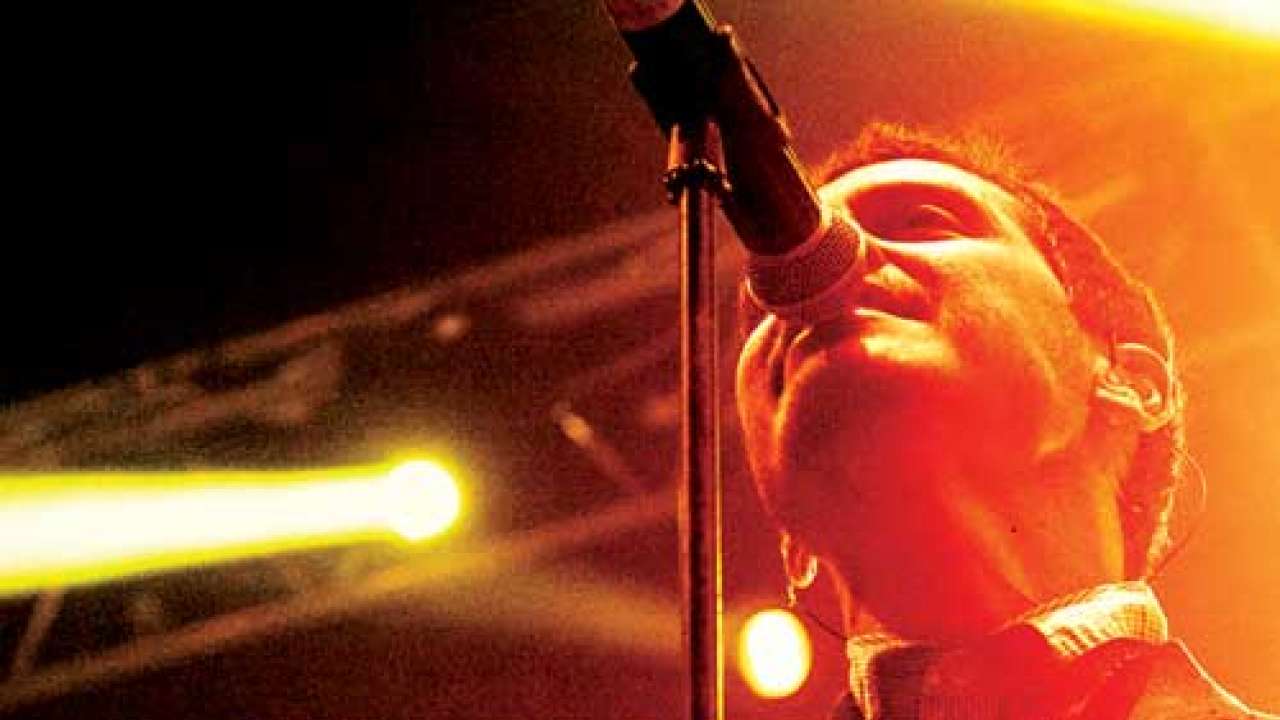
When Mutemath vocalist and keyboardist Paul Meany did his trademark headstand on a keyboard in front of screaming fans at the Bacardi NH7 Weekender in Delhi last weekend, many jaws dropped. Drummer Darren King tried acrobatics on the drum set, and Meany threw himself on his inflatable couch held together by a smitten crowd. And you know that this is a band that pulls out all the stops (and, a keytar and a homemade Atari instrument). Minutes before they go on stage, drummer Darren King is effusive about meeting their ‘kind’ Indian fans. Edited excerpts.
How do you describe Mutemath’s music?
If there’s only one word, I’d say it is rock music. When people ask me, the first thing I talk about is Paul’s voice: it is versatile yet distinctly his own. Then, our drums and rhythm, with all the band members playing the drums. The other guys in the band understand musical theory better than I do. I describe my process of making music as hacking through a jungle with a machete, while they swing on vines. Sometimes I happen upon unique things because I go about in a haphazard and accidental way, with mixed results.
Who are your lasting musical influnces?
Perhaps this is cheating, but I honestly believe that my biggest musical influences are Paul (Meany) and Roy (Mitchell-Cárdenas, their bassist). I was just 14 when I met Paul, and instantly wanted to be him. A lot of what I have learnt is from imitating them.
Early this year DJ Steve Aoki admitted to using pirated synth-wear. Where does Mutemath stand on the piracy debate?
Every time technology advances, there is a group of people who swear that it is going to be the end of music, and another group who finds that it’s just a new, exciting way to embrace music.
I’ll speak only for myself: I am fortunate to play music and get paid for it. It is a lot of work, some of which is not fun at all. I feel getting the music to people is more important than how it gets to them.
The reason music is so freely available is because there are that many of us making music.
People are paying money to watch me play drums at a concert; and I’m thankful for that.
A lot has been written about Mutemath's spiritual stance. Are there any specific spiritual experiences you've planned for while in India?
There’s a Sikh temple in Delhi I’m visiting. (fishes out his phone to show me a picture of the Bangla Sahib gurudwara) Then there’s the Taj Mahal tour. I’m coming back to Delhi after our gig in Mumbai (at the blueFROG on December 3). I’ve been reading about Sikhism, and it seems like a beautiful religion. I genuinely believe that all of us who are praying are hunting and looking for the same thing. And I believe that when you try hard, you’ll get it in the end. It’s just easy for people to disbelieve in religion. Part of the problem is that people believe in what is told to them. You just need to realise that you’ll have a broader understanding from things you will experience yourself. I don’t think it’s important where you start spiritually; what matters is that you go on.
Mutemath has been very protective about its production.
I guess there are different ways of making music.
Sometimes, you just write a song and the chord, lyric, melody and rhythm is everything. And there are times when the sound makes all the difference. I think personally I really enjoy that approach where it has to sound a certain way, and we write with it.
What’s next?
We’re working on our fourth record. We have 30 songs, and are going to write more.
Anything for your fans in India?
I love you guys. The food is great. I don’t understand cricket, with all the rules. I would like someone to teach me cricket, and I’ll teach them American football.